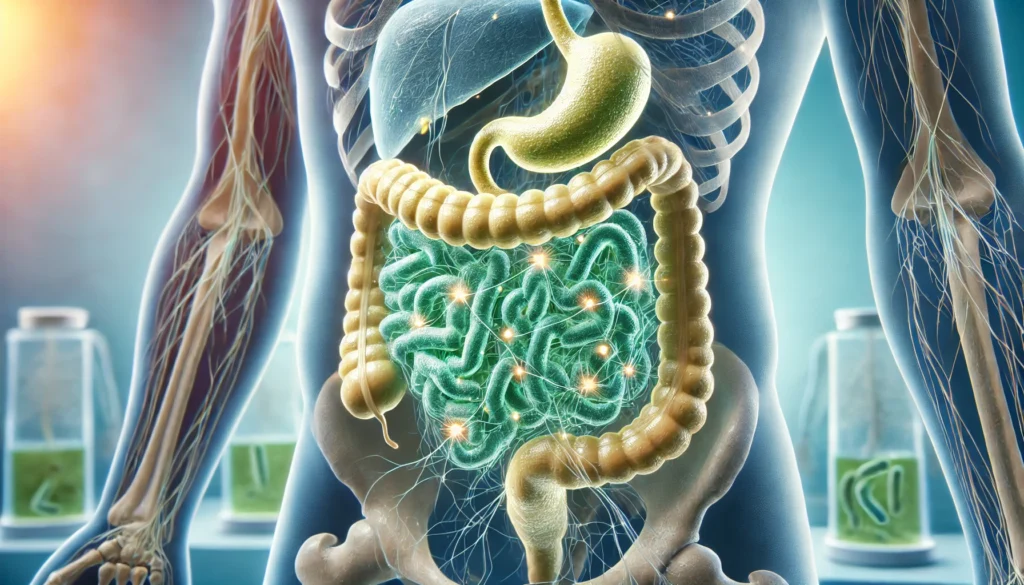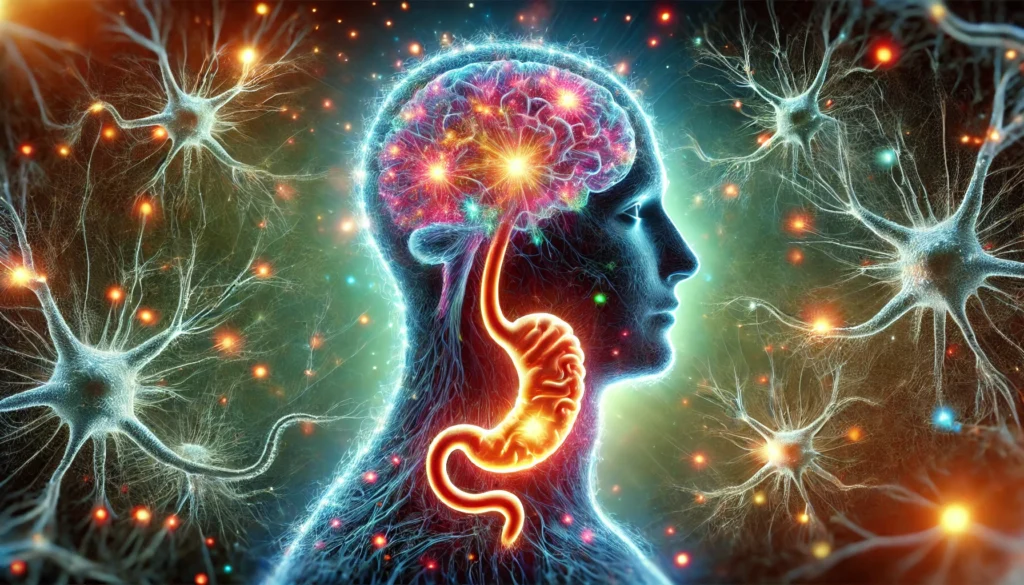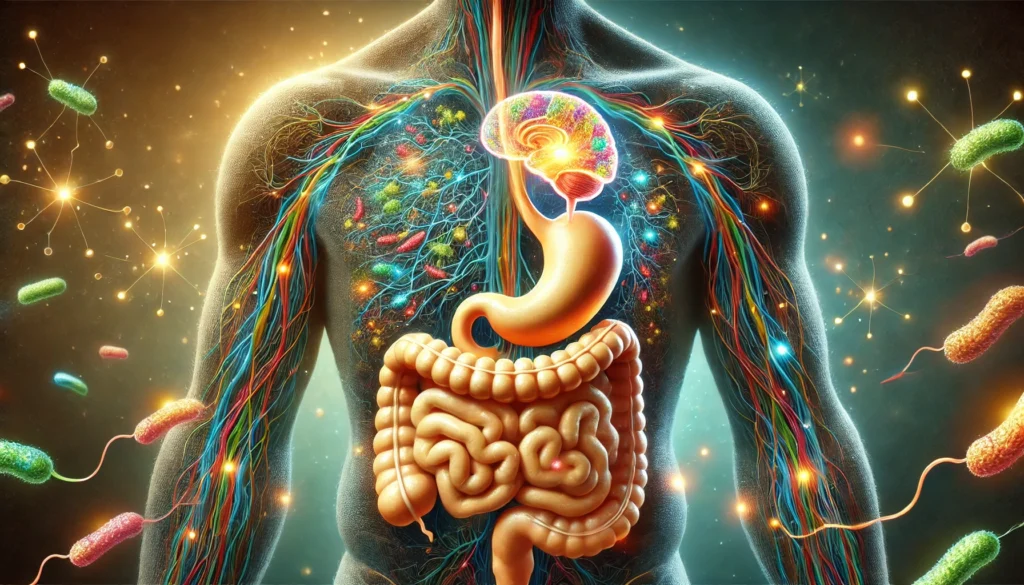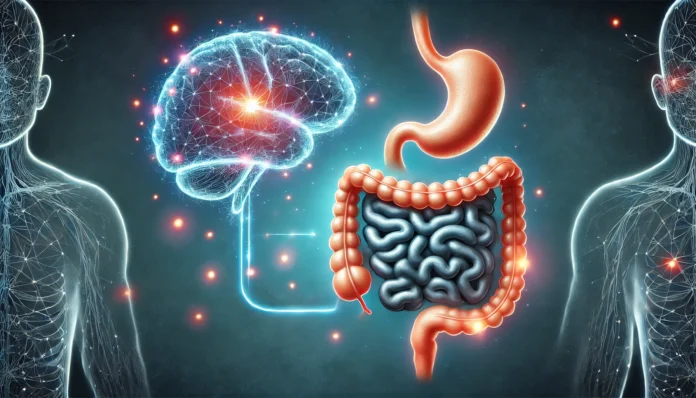In recent years, the intricate relationship between the gut and the brain has garnered increasing attention among scientists, clinicians, and health-conscious individuals alike. What was once considered a relatively isolated system—the digestive tract—is now recognized as a dynamic and influential player in mental and cognitive health. At the heart of this paradigm shift is the concept of the gut-brain axis, a bidirectional communication network connecting the central nervous system with the gastrointestinal tract. Within this context, probiotics—live microorganisms that, when administered in adequate amounts, confer health benefits on the host—are emerging as powerful modulators of brain function. Mounting evidence suggests that the state of our gut microbiota may significantly affect everything from mood and memory to resilience against neurodegenerative diseases. This article explores how probiotics may enhance brain health and cognitive function, examining the underlying science, current research, and the future potential of integrating probiotics into brain health strategies.
You may also like: Best Brain Foods for Focus, Memory, and Longevity: What Science Says
The Gut-Brain Axis: A Critical Communication Superhighway
The gut-brain axis (GBA) refers to the complex communication network that links the enteric nervous system of the gut with the central nervous system of the brain. This communication occurs via multiple pathways, including the vagus nerve, immune system mediators, neurotransmitters, and microbial metabolites. As the gut houses approximately 70% of the body’s immune cells and an estimated 100 trillion microorganisms, its influence on systemic health—and specifically on the brain—cannot be overstated. The idea that our gastrointestinal system can directly impact our thoughts, emotions, and cognitive capacities marks a profound shift in the way health is understood.
Scientific studies have shown that disruptions in the gut microbiota, often referred to as dysbiosis, are associated with a range of neuropsychiatric and neurodegenerative conditions, including anxiety, depression, Alzheimer’s disease, and Parkinson’s disease. The gut microbiota produces a wide array of neuroactive compounds such as serotonin, gamma-aminobutyric acid (GABA), and short-chain fatty acids (SCFAs), all of which play pivotal roles in brain function. These findings have led researchers to investigate whether introducing beneficial bacteria—namely, probiotics—can positively influence mental and cognitive health by restoring balance to the gut ecosystem.
Probiotics and Their Role in Gut Health
Probiotics are often referred to as “friendly bacteria” because of their ability to confer positive effects on the host organism. Common strains include Lactobacillus, Bifidobacterium, and Saccharomyces boulardii, among others. These organisms support the gut’s structural integrity, enhance nutrient absorption, and inhibit the growth of pathogenic bacteria. They also modulate the immune response and reduce systemic inflammation, a known contributor to cognitive decline and mood disorders.
In the context of the gut-brain axis, probiotics do more than merely improve digestive health. They actively participate in the production of neurotransmitters and influence the brain’s neurochemical environment. The significance of this cannot be understated, as neurotransmitter imbalances are often implicated in a range of cognitive and emotional disorders. For example, certain strains of Lactobacillus have been shown to increase GABA levels in the brain, leading to reduced anxiety-like behaviors in animal models. This interaction highlights the emerging role of probiotics in promoting not only gut health but also neurological and psychological well-being.
Probiotics and Brain Health: What the Research Says
Over the past decade, numerous animal and human studies have examined the relationship between probiotic supplementation and brain health. In animal models, probiotics have demonstrated a capacity to enhance cognitive performance, reduce depressive-like symptoms, and even protect against the neurotoxic effects of stress. These findings are echoed in human studies, although the results are more variable due to differences in probiotic strains, dosages, and individual microbiome compositions.
A randomized controlled trial published in the journal Frontiers in Aging Neuroscience found that elderly participants who consumed a milk-based probiotic supplement for 12 weeks exhibited improvements in cognitive test scores compared to a placebo group. Similarly, a study in Nutrients reported that individuals with major depressive disorder experienced significant reductions in symptoms after eight weeks of probiotic supplementation. These outcomes suggest that targeting the gut microbiome through probiotics may offer a novel, non-invasive strategy for enhancing brain function and mental health.
Furthermore, the keyword phrase “probiotics brain” encapsulates the growing interest in understanding how microbial interventions can influence neurological outcomes. Researchers are increasingly exploring how different strains of probiotics interact with brain signaling pathways, modulate inflammation, and affect neuroplasticity—the brain’s ability to reorganize itself by forming new neural connections. As such, probiotics are not only relevant for mental health but also for supporting cognitive vitality across the lifespan.
The Anti-Inflammatory Mechanism: A Key to Cognitive Protection
Chronic inflammation is a well-established risk factor for cognitive decline and neurodegenerative diseases. Proinflammatory cytokines such as interleukin-6 (IL-6) and tumor necrosis factor-alpha (TNF-α) have been implicated in the pathogenesis of Alzheimer’s disease, depression, and other brain-related conditions. Probiotics may exert their neuroprotective effects, in part, by reducing systemic and neuroinflammation.
Studies have shown that probiotic supplementation can decrease the levels of inflammatory markers in both the gut and the bloodstream. This anti-inflammatory action is largely mediated through the enhancement of intestinal barrier function and the modulation of immune cell activity. By preventing the translocation of harmful bacterial endotoxins into the bloodstream, probiotics help reduce the chronic low-grade inflammation that often precedes cognitive impairments.
This anti-inflammatory benefit offers a compelling argument for incorporating probiotics into strategies aimed at preserving brain health. Especially in aging populations where inflammation tends to increase, the ability of probiotics to attenuate these immune responses may contribute significantly to maintaining cognitive clarity and emotional stability.

Neurotransmitter Modulation and Emotional Well-Being
The gut microbiome is intimately involved in the synthesis and regulation of several key neurotransmitters, including serotonin, dopamine, and GABA. Approximately 90% of the body’s serotonin—a neurotransmitter critical for mood regulation—is produced in the gut. Probiotics can influence the availability and activity of these neurotransmitters, thereby affecting mood and emotional well-being.
Several studies have demonstrated that probiotics can alleviate symptoms of anxiety and depression, likely through their effects on neurotransmitter levels and receptor sensitivity. The term “psychobiotics” has even been coined to describe probiotic strains that have a particularly pronounced impact on mental health. For instance, a combination of Lactobacillus helveticus and Bifidobacterium longum was found to significantly reduce psychological distress in healthy volunteers, highlighting the therapeutic potential of targeted probiotic interventions.
This connection between probiotics and brain health underscores the importance of a well-maintained gut environment for psychological resilience. While traditional treatments for mood disorders often rely on pharmacological interventions, probiotics may offer a complementary or even alternative approach that is both natural and well-tolerated.
Probiotics and Neuroplasticity: Enhancing the Brain’s Adaptive Capacity
Neuroplasticity refers to the brain’s ability to reorganize itself by forming new neural connections throughout life. This adaptability is crucial for learning, memory, and recovery from brain injuries. Emerging evidence suggests that the gut microbiome—and by extension, probiotics—can influence neuroplasticity through several mechanisms, including the regulation of neurotrophic factors, reduction of oxidative stress, and modulation of neuroinflammatory processes.
One of the most studied neurotrophic factors is brain-derived neurotrophic factor (BDNF), which supports the survival of existing neurons and the growth of new ones. Lower levels of BDNF have been associated with cognitive impairments and psychiatric disorders. Some probiotic strains have been shown to increase BDNF expression in animal models, suggesting a direct role in supporting cognitive function and mental health.
This link between probiotics and enhanced neuroplasticity offers a promising avenue for interventions aimed at optimizing cognitive performance and emotional resilience. As our understanding of the gut-brain axis deepens, so too does the potential to leverage probiotic therapies in the service of long-term brain health.
The Lifespan Perspective: Supporting Cognitive Health from Youth to Old Age
While much of the research on probiotics and brain health has focused on aging populations, it is becoming increasingly clear that these benefits are relevant across the entire lifespan. From early childhood development to cognitive preservation in later years, the state of the gut microbiome plays a foundational role in shaping neurological outcomes.
In children, the establishment of a healthy gut microbiota is critical for proper brain development and immune system function. Emerging research suggests that early-life probiotic supplementation may improve attention, behavior, and even academic performance. In adults, probiotics can help manage stress, improve focus, and support emotional regulation. For older adults, the cognitive benefits of probiotics may include enhanced memory retention, reduced risk of dementia, and improved quality of life.
By recognizing the importance of gut health at every stage of life, individuals can take proactive steps to support brain function through dietary choices, lifestyle modifications, and targeted probiotic supplementation. The growing field of “probiotics and brain health” reflects this holistic, lifespan-oriented perspective, emphasizing prevention as much as treatment.
Practical Considerations: Choosing the Right Probiotic for Cognitive Support
Not all probiotics are created equal, and their effects on brain health can vary widely depending on the strains used, the dosage, and the individual’s existing microbiome. When selecting a probiotic for cognitive or emotional support, it is important to choose clinically validated strains with documented benefits in peer-reviewed research.
Commonly studied strains for brain health include Lactobacillus rhamnosus, Bifidobacterium longum, and Lactobacillus plantarum. These strains have been associated with improvements in mood, stress resilience, and cognitive performance. Dosage and duration also matter; most studies demonstrating cognitive benefits have used daily doses ranging from 1 to 10 billion colony-forming units (CFUs) over periods of at least eight weeks.
It is also essential to consider product quality, as probiotics are sensitive to heat, moisture, and time. Look for supplements that guarantee potency through the end of shelf life, and consider formulations with prebiotics—non-digestible fibers that serve as food for probiotics—to enhance efficacy. Personalized approaches, guided by healthcare professionals and microbiome testing, may offer the most precise and effective strategies for leveraging probiotics in support of brain health.

Frequently Asked Questions: Probiotics and Brain Health
1. How can probiotics influence sleep quality and circadian rhythm regulation?
Probiotics may play a surprisingly important role in modulating sleep cycles by influencing neurotransmitters such as serotonin and melatonin, both of which are integral to sleep regulation. Through their effect on the gut-brain axis, specific probiotic strains have been shown to modulate the body’s circadian rhythms by supporting the production of these neurochemicals. In particular, the interplay between gut bacteria and serotonin production in the gut can indirectly influence melatonin secretion in the pineal gland. This means that people suffering from fragmented sleep or circadian misalignment may benefit from tailored probiotic interventions. The broader implication for probiotics and brain health includes improved cognitive performance and emotional stability as secondary benefits of more restful, restorative sleep.
2. Are there any emerging applications of probiotics for brain trauma or recovery from brain injury?
Recent animal studies have opened up promising avenues for using probiotics in post-traumatic brain injury (TBI) recovery protocols. Following a brain injury, systemic inflammation and oxidative stress can impair recovery and exacerbate neurodegeneration. Certain probiotic strains are being explored for their ability to reduce inflammatory cytokines, strengthen the blood-brain barrier, and stimulate neurogenesis during post-injury healing. While human studies are still limited, early data suggest that probiotics may offer adjunctive benefits in rehabilitation following strokes or TBIs. These findings mark an exciting frontier in the intersection of probiotics and brain health, especially for long-term cognitive recovery.
3. Can probiotics affect creativity or divergent thinking in healthy individuals?
Though not yet a mainstream area of research, emerging hypotheses suggest that probiotics could influence higher-order cognitive functions such as creativity. By modulating the levels of neurotransmitters like dopamine, which plays a central role in reward processing and idea generation, probiotics may indirectly support cognitive flexibility. Additionally, reducing inflammation and enhancing gut-derived serotonin may create a mental environment more conducive to divergent thinking. While clinical studies on probiotics and creativity are limited, anecdotal and early experimental findings hint at a fascinating link. The role of probiotics in brain function continues to expand beyond traditional domains, potentially encompassing nuanced areas like innovation and abstract reasoning.
4. How do probiotics interact with psychotropic medications, and are there risks or benefits?
When it comes to combining probiotics with medications such as SSRIs, antipsychotics, or anxiolytics, the current evidence points more toward potential synergy than contraindication. Some probiotics can enhance the bioavailability of certain drugs or modulate their side-effect profiles by reducing gastrointestinal distress and improving metabolic parameters. However, it’s critical to note that the use of probiotics alongside psychotropic medications should be monitored by a healthcare professional, as microbiome shifts could theoretically influence drug metabolism over time. On the positive side, probiotics and brain health protocols may allow for lower doses of medications in some patients, potentially reducing long-term pharmacological burden. As personalized medicine evolves, gut microbiome assessments may become routine in psychiatric care.
5. Can probiotic supplementation influence academic performance or learning capacity in students?
A growing body of research suggests that probiotics may improve focus, memory retention, and stress management—all key factors in academic success. In students facing high-stress academic environments, chronic cortisol elevation can impair hippocampal function, a critical area for learning and memory. Certain strains of probiotics have been found to blunt the stress response while supporting cognitive resilience, potentially enhancing exam performance and information recall. This highlights a new practical dimension of the probiotics brain connection, especially in high-pressure educational settings. As the science matures, future academic wellness programs may include tailored probiotic strategies as part of holistic cognitive support.
6. Are the effects of probiotics on brain health influenced by diet, lifestyle, or genetics?
Absolutely. The effectiveness of probiotics for brain health can be significantly shaped by individual differences in genetics, lifestyle, and dietary patterns. For example, a fiber-rich diet provides the prebiotic substrates necessary for probiotic bacteria to thrive and exert their neuromodulatory effects. Conversely, excessive alcohol consumption or chronic stress may counteract the benefits of even the most potent probiotics. Genetic polymorphisms, such as those affecting serotonin transport or inflammation regulation, can also influence how one responds to probiotics. Understanding these interactions is critical for optimizing personalized approaches to probiotics and brain health in clinical and wellness settings.
7. What are the long-term implications of daily probiotic use for mental aging and neurodegenerative disease prevention?
Long-term use of probiotics may contribute to a reduced risk of cognitive decline by preserving gut integrity, modulating inflammation, and supporting the production of neuroprotective compounds. In aging populations, chronic low-grade inflammation—known as “inflammaging”—is a major contributor to neurodegenerative diseases like Alzheimer’s and Parkinson’s. Probiotics that enhance gut barrier function may limit systemic exposure to endotoxins that accelerate neurodegeneration. In this context, the role of probiotics and brain health is especially promising for delaying age-related cognitive impairments. Ongoing longitudinal studies are exploring whether consistent probiotic use could one day become a non-invasive, accessible strategy for promoting cognitive longevity.
8. Are there differences in how men and women respond to probiotics for cognitive or emotional health?
Sex-based differences in hormone profiles, immune function, and microbiome composition can influence how men and women respond to probiotic interventions. Estrogen, for instance, modulates gut permeability and microbial diversity, which could affect how probiotics interact with the female gut-brain axis. Some studies suggest that women may derive greater anxiety-reducing benefits from specific probiotic strains compared to men, potentially due to differing serotonergic activity. On the other hand, men might experience more pronounced effects on cognitive endurance and inflammatory regulation. These nuances underscore the importance of considering sex as a variable in future research on probiotics brain interventions.
9. Can probiotics play a role in enhancing emotional intelligence or interpersonal skills?
Though still speculative, some researchers propose that the emotional self-regulation and mood stability supported by probiotics could positively influence social cognition. Improved gut health may lead to better impulse control, reduced irritability, and enhanced empathy, all of which contribute to stronger interpersonal relationships. Additionally, by mitigating social anxiety and depressive symptoms, probiotics may create a more emotionally attuned and socially engaged individual. While emotional intelligence is influenced by numerous psychological and environmental factors, the connection between probiotics and brain health may be one component in enhancing social functioning. This area holds intriguing potential for future behavioral neuroscience studies.
10. How might future technologies enhance the precision of probiotic therapies for brain health?
Advances in microbiome sequencing, metabolomics, and artificial intelligence are poised to revolutionize how we use probiotics for neurological health. Personalized probiotic formulations based on individual gut profiles could maximize efficacy by matching specific strains to unique neurochemical or inflammatory imbalances. Additionally, smart capsules designed to release probiotics at targeted regions of the gut may further enhance their brain-specific benefits. Integrating digital biomarkers and real-time mood tracking could also enable adaptive, feedback-driven probiotic regimens. As we move toward an era of precision medicine, the synergy between cutting-edge technology and probiotics and brain health strategies could redefine mental wellness paradigms.

Conclusion: Embracing the Probiotic Frontier in Brain Health and Cognitive Longevity
As scientific understanding of the gut-brain axis continues to evolve, the role of probiotics in enhancing mental and cognitive well-being becomes increasingly compelling. From modulating inflammation and neurotransmitter activity to supporting neuroplasticity and emotional balance, probiotics offer a multifaceted approach to nurturing the brain through the gut. The phrases “probiotics brain” and “probiotics and brain health” now represent more than just trending topics—they signify a growing movement toward integrative, microbiome-informed strategies for cognitive vitality.
By adopting a proactive stance on gut health—whether through diet, lifestyle, or targeted supplementation—individuals can empower themselves to protect and enhance their mental faculties throughout life. As research continues to uncover the full extent of this gut-brain connection, probiotics may well become a cornerstone of modern approaches to brain health, offering not only hope but also actionable pathways to a sharper, more resilient mind.
gut microbiome and mental health, cognitive function and digestion, gut-brain connection, mental clarity supplements, microbiome and mood, brain fog remedies, natural cognitive enhancers, digestive health and the mind, neuroinflammation support, emotional resilience supplements, aging and brain vitality, brain-supporting nutrients, natural mood stabilizers, mental performance boosters, brain longevity strategies, neuroprotective gut bacteria, holistic brain wellness, cognitive support through nutrition, gut health for memory, natural focus enhancers
Further Reading:
Probiotics as modulators of gut-brain axis for cognitive development
The effect of probiotics on cognitive function across the human lifespan: A systematic review
Probiotics may help boost mood and cognitive function
Disclaimer
The information contained in this article is provided for general informational purposes only and is not intended to serve as medical, legal, or professional advice. While Health11News strives to present accurate, up-to-date, and reliable content, no warranty or guarantee, expressed or implied, is made regarding the completeness, accuracy, or adequacy of the information provided. Readers are strongly advised to seek the guidance of a qualified healthcare provider or other relevant professionals before acting on any information contained in this article. Health11News, its authors, editors, and contributors expressly disclaim any liability for any damages, losses, or consequences arising directly or indirectly from the use, interpretation, or reliance on any information presented herein. The views and opinions expressed in this article are those of the author(s) and do not necessarily reflect the official policies or positions of Health11News.


